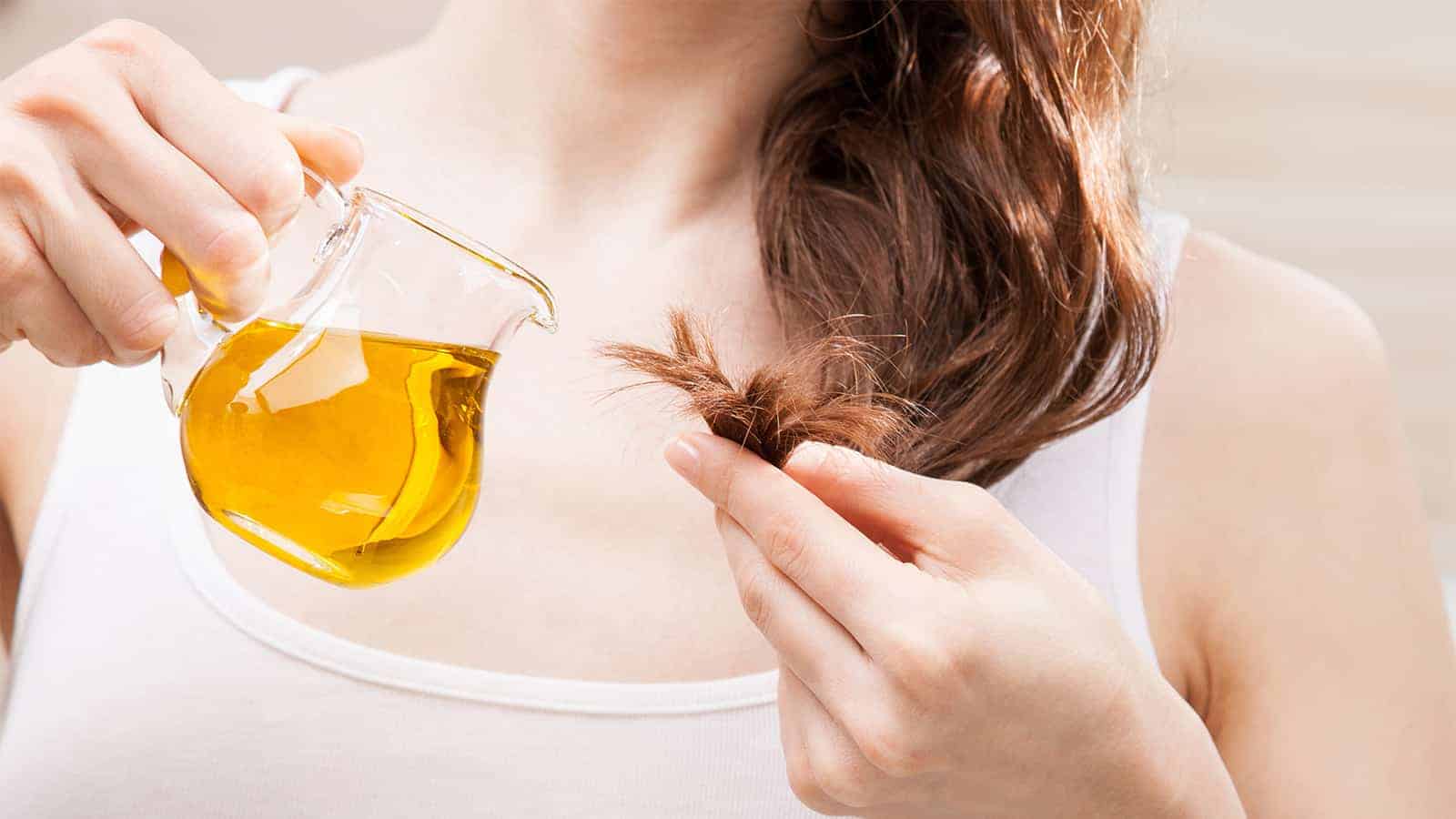For many years, people have made olive oil a mainstay when it comes to cooking and home remedies. Lately, however, more and more people have begun extolling the benefits of olive oil for adding shine, body, and softness to one’s hair. The oil has also reportedly been useful in curtailing hair loss and even dandruff. Although the nutritional benefits of olive oil are well established, there is limited scientific research to substantiate the claims made about its effectiveness relative to hair care. However, there is sufficient anecdotal evidence that shows the properties in olive oil can improve hair health. In this article, we will be taking a closer look at the studies involving the use of olive oil has a hair care product and whether or not it is a viable alternative to traditional products.
OLIVE OIL BENEFITS
Before detailing how olive oil-based hair care treatments can improve hair health, let’s take a moment to go over how it can benefits your overall health first. Current research shows that olive oil and other monounsaturated fats can provide immense nutritional value including
Lowers cholesterol – Monounsaturated fat contains properties that are known to reduce LDL (low-density lipoprotein) cholesterol, which is considered bad cholesterol. Furthermore, monounsaturated fat can also increase (HDL) high-density lipoprotein, the good cholesterol that the body needs to help reduce the risk of heart disease and stroke.
Antioxidants – Monounsaturated fats contain antioxidants, like polyphenols, vitamins E, vitamin K, chlorophyll, and carotenoids, for example, that are critical in strengthening the immune system and protecting the body against free-radicals.
Anti-inflammatory – Oils containing monounsaturated fats acts as a natural anti-inflammatory to help relieve minor aches and pains. In fact, studies show these oils are comparable to that many over-the-counter pain relievers like ibuprofen, for example, when it comes to reducing inflammation.
OLIVE OIL BENEFITS AND WHY SOME OILS ARE BETTER THAN OTHERS
While olive oils benefits are plentiful in terms of overall health, they are not all created equal. That said, the extra virgin variant is considered the best in that it is derived from natural olive juice and is the least processed compared to other monounsaturated oils. However, there are several differences even among oils classified as extra virgin. Some of these factors may include
- The process used in making the oil
- The ripeness of the olives when harvested
- Storing methods used
It is also worth noting that the extra virgin variation of these oils contains a higher degree of health-based properties compared to non-extra-virgin oils, according to the National Institute of Health. Beyond that, non-virgin oils undergo an extreme heat or chemical process that neutralizes many of the properties that would otherwise contribute to improved health. Some of these properties include
- Vitamin E
- Vitamin K
- Carotenoids
- Antioxidants
- Polyphenols
- Chlorophyll
OLIVE OIL BENEFITS AND HAIR CARE
When it comes to olive oil for your hair, most scientists do not consider it a viable alternative to traditional shampoo or conditioner; however, studies have shown that these oils do contain conditioning agents that help detangle the hair and also keep frizz to a minimum. In saying that, monounsaturated oils play a key role when it comes to protecting the hair from damage in that the oil penetrates the hair shaft and restricts how much water the hair is capable of absorbing.
As a result, swelling to the hair shaft is reduced considerably, which limits the stress on the hair and prevents split ends, breakage, and other types of hair damage. Some studies show that combining coconut oil with olive oil is ideal for retaining moisture as damaged hair is often the byproduct of excessive dryness. It is also worth noting that combining these monounsaturated oils is a great way to help minimize damage to hair proteins. Lastly, the study showed that participants who used coconut oil with olive-based oil achieved the best result when using it before and after washing their hair.
HOW TO USE OLIVE-BASED OIL ON YOUR HAIR
While many people tend to use olive-based oil to condition their hair, it may not be advisable for all hair types. With that caveat in mind, here are a few ways to make the oil part of your overall hair-care routine:
- Start with only a small amount to see how your hair will respond
- Add small amounts of oil to scalp or hair that are exceedingly dry
- Cover hair for at least 15 minutes
- Rinse hair with tepid water
- Wash and shampoo your hair as normal
Although there are myriad of methods detailing how to use olive-based oil on your hair, there is no right or wrong way to use the oil when it comes to an ideal hair-care regimen. The steps detailed in this article are merely suggestions based on applications used by those who have tried using the oil on their hair in the past. To get the most out of your oil treatment, it would be a good idea to try several methods until you find the one that works best for you.
WHO IS MOST LIKELY TO BENEFIT FROM AN OLIVE OIL-BASED HAIR CARE ROUTINE?
If you’re considering an olive oil-based hair care regimen, it is important to note that it may not be an ideal treatment for all hair types. For example, studies have shown that using olive-based oil on fine hair can make the hair not only greasy but also weighty. Conversely, similar studies show that those with coarse or dry hair stand to benefit from an olive oil-based hair care routine the most.
POPULAR ALTERNATIVES TO AN OLIVE OIL-BASED HAIR CARE ROUTINE
If you are among the unfortunate few who have not benefited from an olive oil-based hair care routine, there other treatments that may work for your hair type, especially if you struggle with dry hair. Before detailing some of the remedies you can try at home, let’s take a moment to understand what causes the condition in the first place. Dry hair can be caused by several things including
- Too much such exposure
- Washing the hair too often
- Vitamin deficiencies
- Chlorinated water
- Styling products
- Harsh hair care products
- Certain prescription medication
To combat dry hair, you can try using oils that are naturally rich in antioxidants and vitamin E as they a great for helping the hair to retain moisture and repairing hair damage that may have already occurred. Some of the more commonly used oils include
- Jojoba oil
- Corn oil
- Almond oil
- Coconut oil
- Castor oil
Here are 5 tips that can help you get the most out of using any of these alternative oils:
- Combine water and a half cup of your oil of choice
- Massage the combination into hair and scalp for several minutes
- Cover the hair
- Allow the oils to penetrate the hair at least 30 minutes
- Shampoo and rinse like normal
IS AN OLIVE OIL-BASED HAIR CARE TREATMENT SAFE?
Generally speaking, olive oil-based treatment, as well as treatments using other oils, is considered safe. However, there is a caveat in that those who are allergic to these type of oils should refrain from using them as they may irritate the scalp. Also, as previously noted, using oils on certain hair types have been shown to result in extremely greasy and weighty hair.
OLIVE OIL-BASED TREATMENTS FOR BEAUTY BENEFITS
In addition to improving the condition of one’s hair, olive oil benefits the skin as well. For example, the antioxidants in these oils have been shown to reduce fine lines and wrinkles that contribute to premature aging. Also, these oils can help keep the skin moisturized and may even resolve certain skin conditions in the process.
In summation, an olive oil-based regimen is a great way to keep your hair moisturized, repair damage, and improve the overall condition of your hair. In saying that, those who are interested in trying this regimen should make it a point to use an extra virgin olive-based oil or any number of the other oils detailed in this article. Also, it may not be a good idea to use an oil treatment in combination with dyes, perming products, relaxers, or any other hair styling products. Beyond that, if the condition of your hair does not improve or worsens, you should immediately stop applying the oil to your hair and consider alternative treatments.














 Community
Community

